Sully Historic Site
📍 Chantilly
Your browser is not supported for this experience.
We recommend using Chrome, Firefox, Edge, or Safari.
📍 Chantilly
The African American experience is intricately entwined in the rich tapestry of Fairfax County’s history and in America’s story. With a wealth of African American historical sites throughout the Washington, DC and Northern Virginia region, take a journey to reflect on the sacrifices and vital contributions that African Americans have made throughout our history.
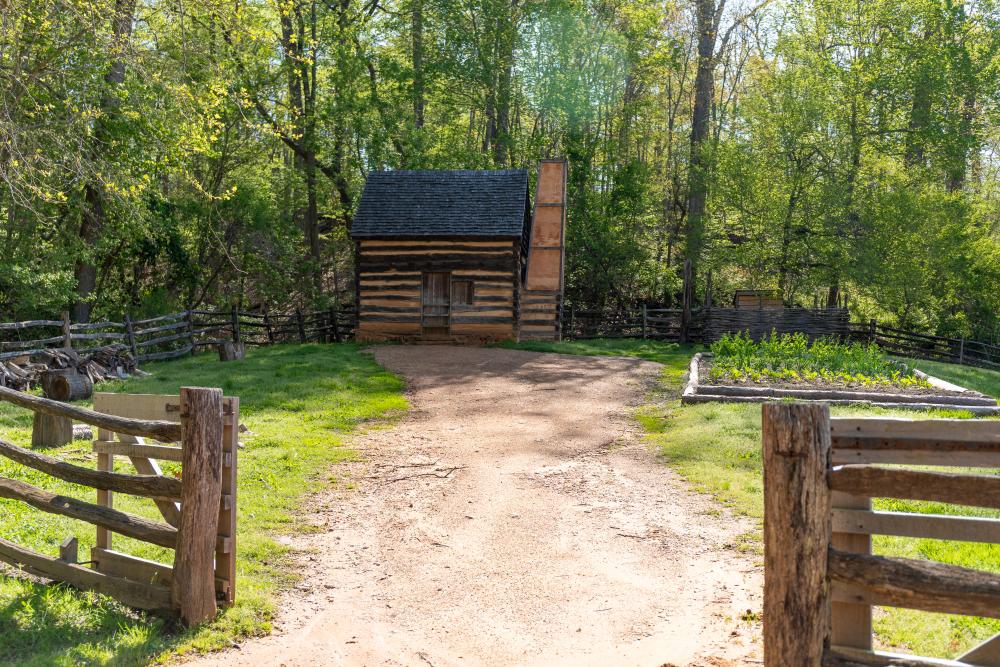
Image courtesy Mount Vernon
Step into the past by visiting the historic home of George Washington, where you'll encounter 25 captivating interactive galleries and theaters. These exhibits offer a truly immersive experience, with knowledgeable guided tours leading you on a journey through the rich stories of the enslaved people of Mount Vernon, the slave quarters, and the memorials that commemorate the memory of the enslaved and free Black individuals buried on the grounds.
Where: Mount Vernon, VA
Hot tip: Commemorate the enslaved community at Mount Vernon during their special wreathlaying presentations, offered daily, February - October.
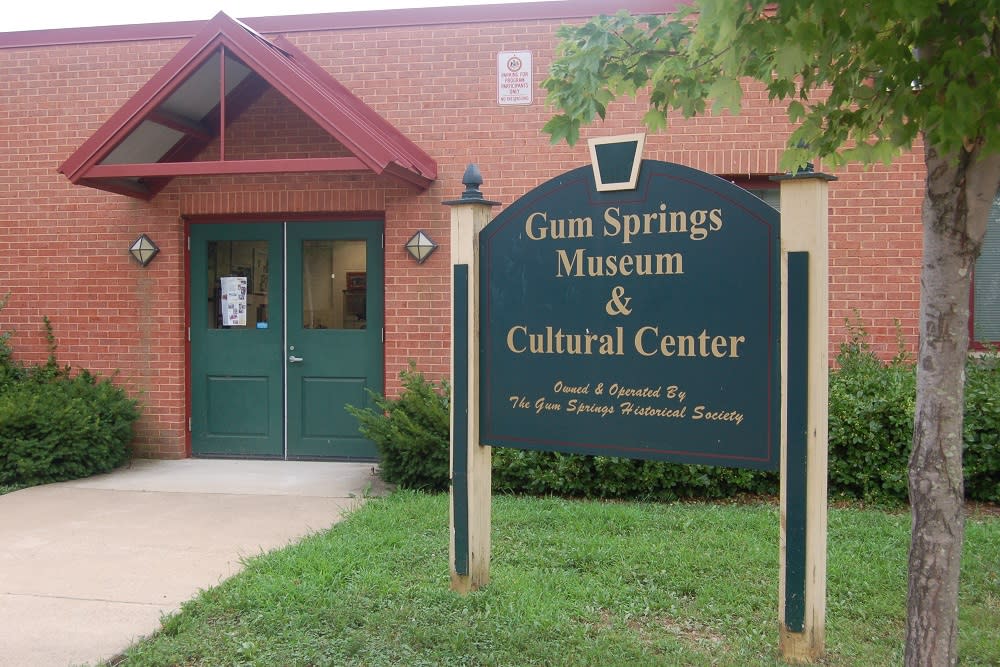
Image courtesy Gum Springs
Discover the captivating story of Gum Springs, a vibrant town with a population of 2,500 residents. Founded in 1833 by West Ford, a freed slave, this remarkable community served as a sanctuary for both liberated slaves and those who had escaped from bondage. Over time, Gum Springs flourished into one of the oldest and most successful African American communities in the United States, with a deep-rooted sense of self-sufficiency and pride.
Where: near Mount Vernon, Fairfax County, Virginia
Hot tip: Visit the Gum Springs Historical Society’s Museum & Cultural Center, open Monday-Friday from 6-8pm and Tuesdays/Saturdays from 1-3pm. It’s advisable to call to confirm hours before visiting.
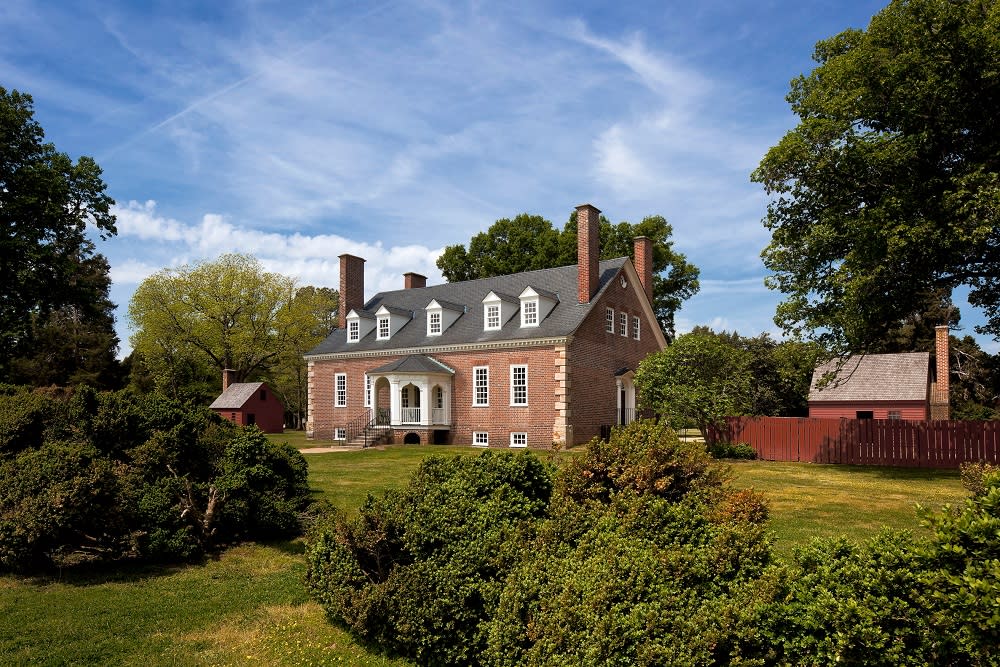
Image courtesy Gunston Hall
Nestled close to Mount Vernon lies the magnificent Gunston Hall, the ancestral abode of George Mason. This iconic residence belongs to the legendary figure who ardently supported civil liberties and authored Virginia's Declaration of Rights, yet paradoxically, also owned slaves. As you wander through this vast plantation, you'll marvel at the restored structures and the interpretative actors scattered throughout the grounds, bringing to life the stories of the diverse contributors, including slaves, who played a crucial role in making the 18th-century household function smoothly.
Where: Mason Neck, Fairfax County, Virginia
Hot tip: Read more about this Founding Father’s complicated relationship with slavery before you visit, to get a better understanding of his viewpoints.
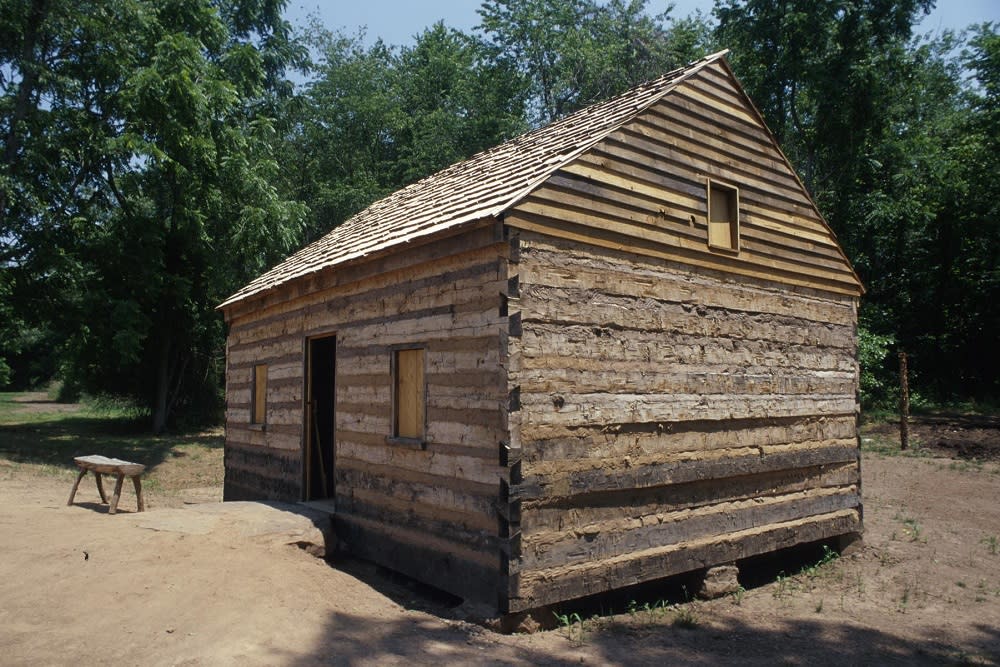
Image courtesy Don Sweeney/Fairfax County Park Authority
Indulge in a glimpse of the past by visiting the picturesque Sully, a historic site that boasts an impressive listing on the National Register. This magnificent property features an array of original outbuildings, beautifully-maintained gardens, and representative slave quarters in addition to the main house. During the guided tours, you'll be transported back in time to the early 19th century and gain valuable insights into the everyday lives of the family, their tenant farmers, and the enslaved African Americans who were an integral part of the household.
Where: Chantilly, Virginia
Hot tip: Access to the park is free, but there is a small fee for guided tours of the main house. Be sure to check the event schedule for the day, as there are many programs, tours, and activities throughout the year.
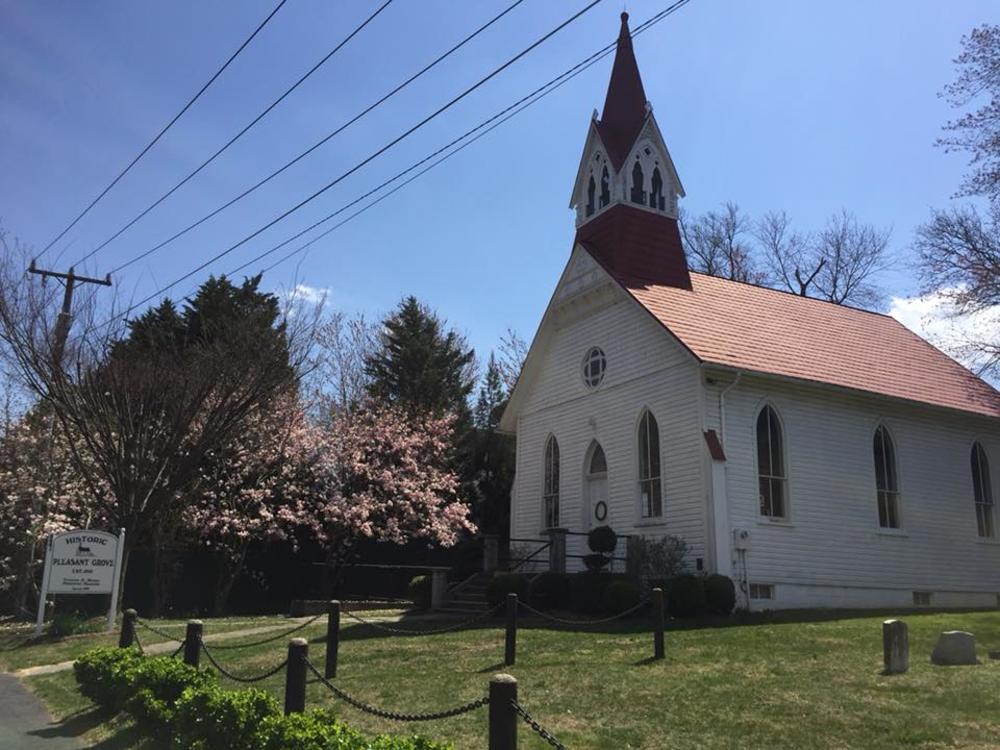
Image courtesy Friends of Pleasant Grove
Immerse yourself in the rich cultural heritage of McLean, Fairfax County, Virginia by visiting this cherished community landmark and historic church. Originally constructed in 1895 by and for African and Native Americans, this captivating site is a testament to the ingenuity and creativity of its founders. While here, be sure to explore the Frances K. Moore Memorial Museum, which is named in honor of one of the church's descendants. The museum houses a rare collection of late 19th and 20th-century household furnishings, tools, photographs, and memorabilia, providing a fascinating glimpse into the lives of the people who helped shape this remarkable community.
Where: McLean, Virginia
Hot tip: Keep an eye out for the many cultural and community-wide programs and events held by the Friends of Pleasant Grove throughout the year, including the annual Black History Celebration which features the Washington Revels Jubilee Voices Ensemble.
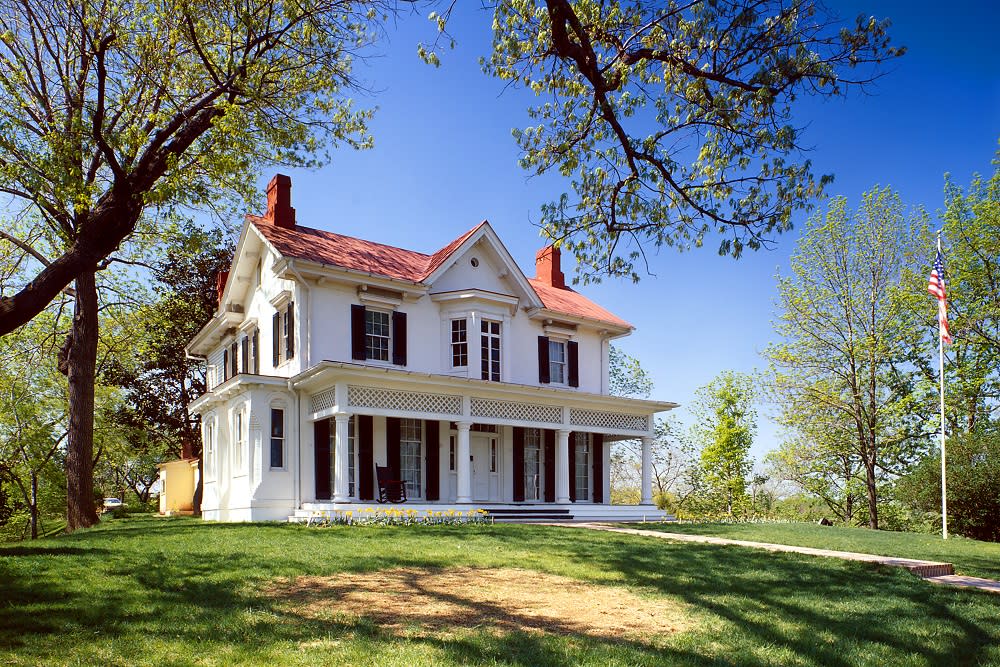
Cedar Hill is open to the public to walk the grounds and the historic house is open only at scheduled times for guided tours. Rangers guide tours on Tuesdays, Wednesdays, and Saturdays - hours vary by season. Every visit should begin at the visitor center. Talk to a ranger or volunteer at the information desk to get brochures, pick up tickets for a guided tour of the historic house, and find out what's happening in the park.
Where: Anacostia, Washington, DC
Hot tip: You must be on a guided tour to get inside the historic house. Because space is limited, reservations are strongly encouraged, even if you are visiting on your own. If you are visiting with a group of more than ten, reservations are required.
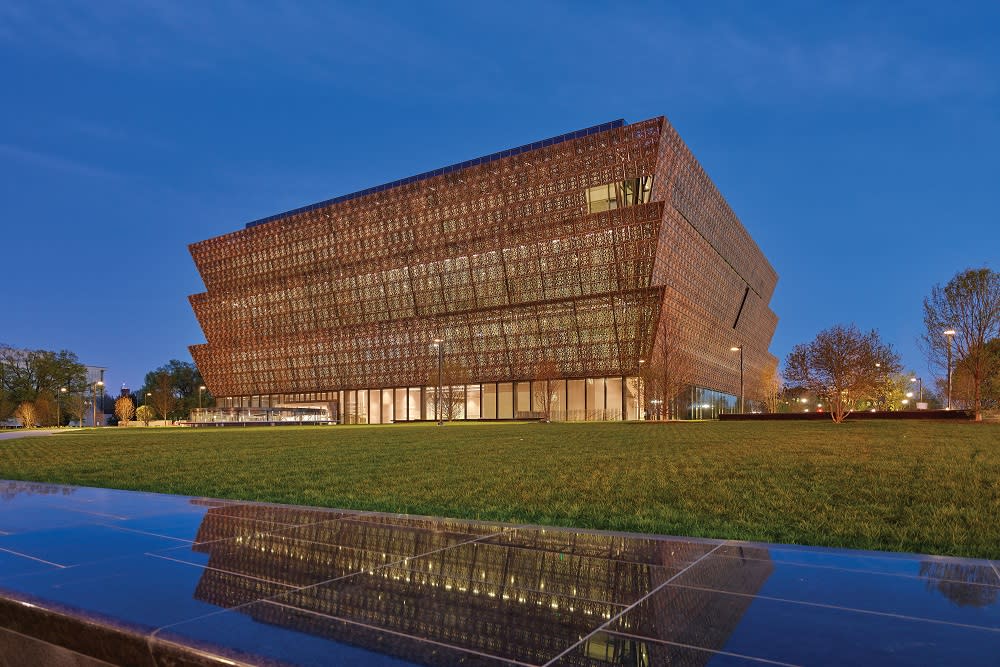
Image courtesy National Museum of African American History and Culture
Embark on an unforgettable journey of discovery at this one-of-a-kind national treasure, the only museum in the country solely dedicated to preserving and celebrating African American life, history, and culture. Step inside and be inspired by the museum's captivating collections, stunning exhibits, and interactive multimedia, which shed light on a broad range of topics, including history, culture, race, and social justice. Prepare to be moved and challenged as you explore the thought-provoking displays and gain a deeper appreciation for the rich tapestry of African American heritage.
Where: National Mall, Washington, DC
Hot tip: Due to demand, timed-entry passes may be needed for this free museum during certain peak times and seasons. Be sure to check on passes in advance.
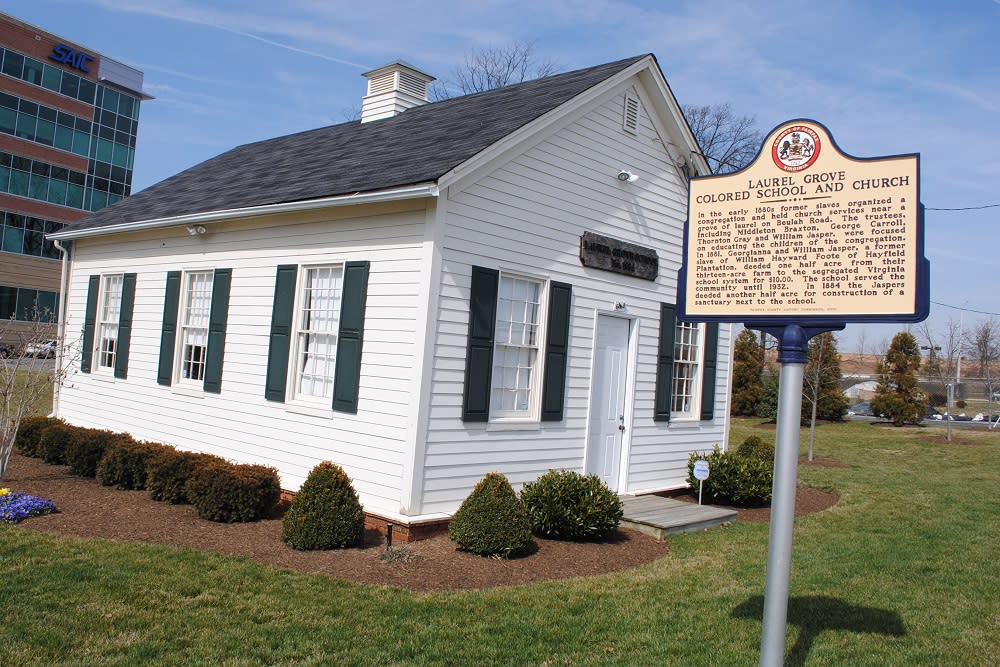
Closed in 1932 and restored by family descendants and interested citizens, Laurel Grove tells the unique story of a community’s refusal to narrow its ambitions. Of all the “colored” schools that opened in the region, only Laurel Grove exists today as a “living museum.” Read more about this incredible story in our blog feature article.
Where: Alexandria, Fairfax County, Virginia
Hot tip: The schoolhouse is open Tuesday, Thursday, and Saturday from 10am - 2pm. Visit their website or give them a call to inquire about appointment-based visits.
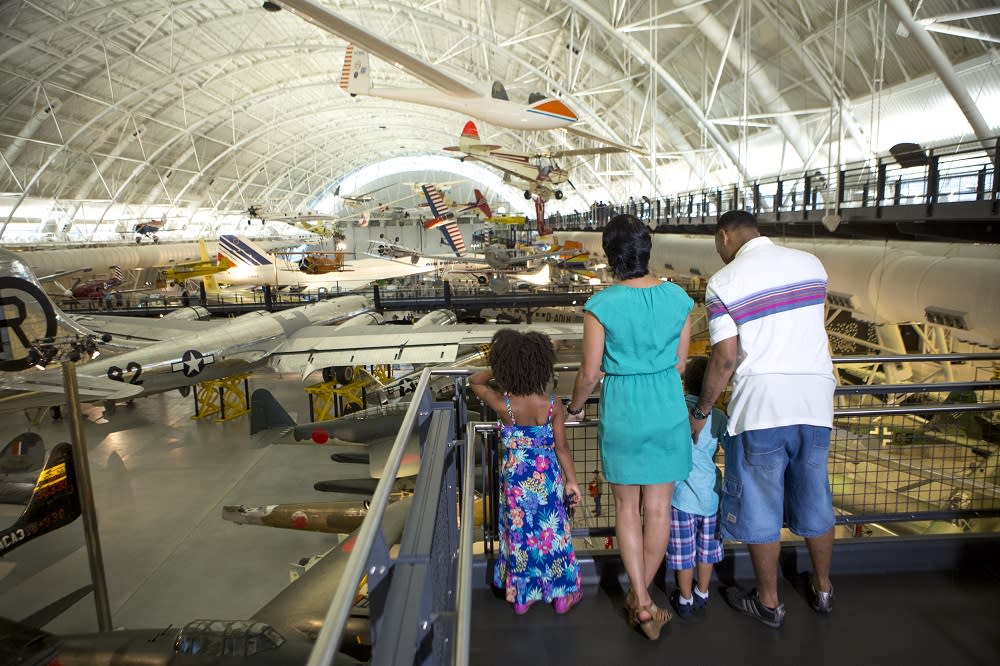
The Smithsonian's National Air and Space Museum has a fantastic collection showcasing stories about amazing African American history makers (among other historically excluded groups) in the aviation and space fields. Learn about Bessie Coleman, the first Black woman to earn a pilot's license, or Mae Jemison, the first Black woman to fly into space. You'll also find learning resources, videos, and upcoming programs to do a deeper dive into these stories. When you visit in person, you'll find the world’s largest collection of aviation artifacts which includes tributes to the Tuskegee Airmen, the heroic African American pilots of World War II.
Where: Chantilly, Fairfax County, Virginia
Hot tip: Don’t miss the online exhibit Black Wings, which details the stories about how African Americans shared the widespread enthusiasm for flying, but they found themselves routinely denied access to training as pilots and mechanics.
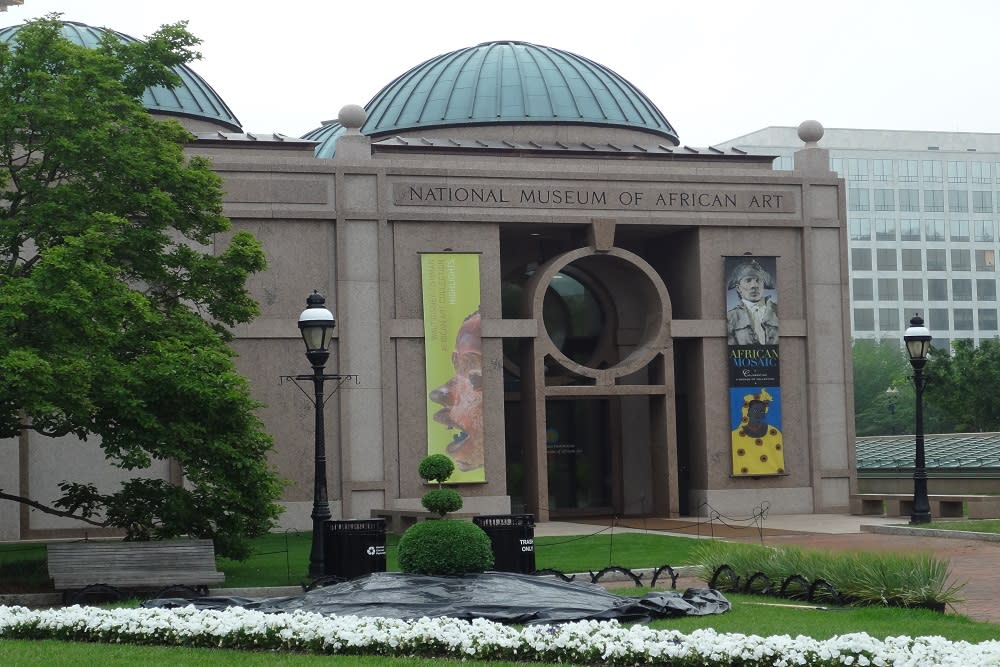
The only museum in America devoted to the collection, research, conservation, and display of traditional and contemporary African art is a must-visit destination for art enthusiasts. With docent-led tours available all week, visitors can immerse themselves in the museum's unique collections, and special events throughout the year add to the experience. Furthermore, admission is free, making it accessible for everyone to enjoy and appreciate the beauty of African art.
Where: National Mall, Washington, DC
Hot tip: Exhibits are always changing, so visit more than once!
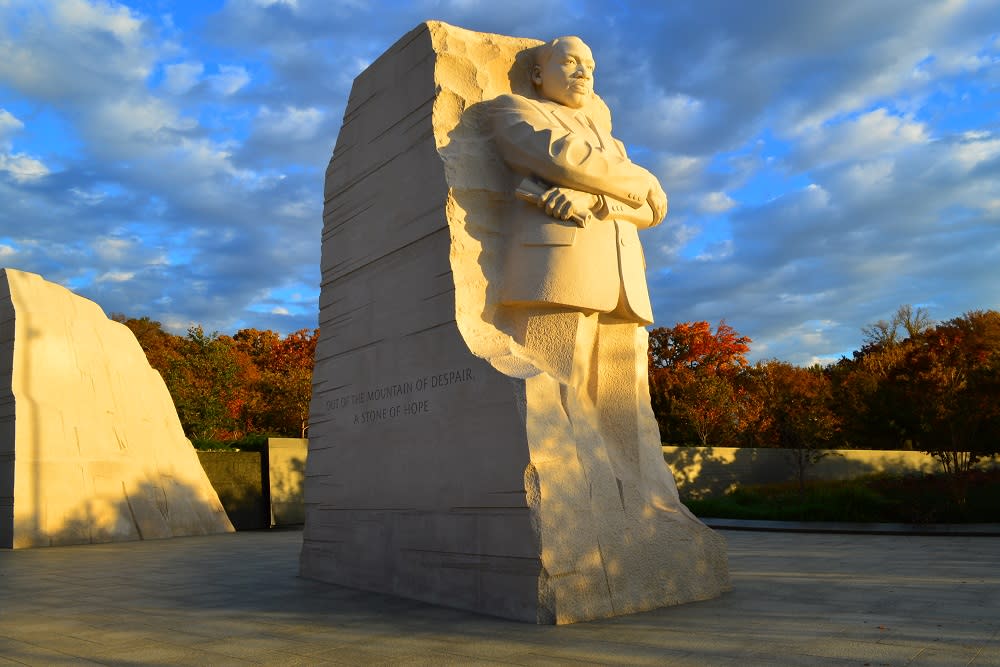
When we aren't celebrating Martin Luther King Jr. Day, visitors can pay tribute to the life and legacy of Martin Luther King Jr. at the MLK, Jr. Memorial, the first memorial on the National Mall that honors a citizen activist for civil rights and peace. The memorial serves as a tribute to not only the man but also the freedom movement and the ideals of equality, justice, and love that he advocated for. With its inspiring and thought-provoking design, the memorial is a powerful reminder of King's enduring impact on American history and culture.
Where: Tidal Basin, Washington, DC
Hot tip: Combine this stop with a visit to the steps of the Lincoln Memorial, where Dr. King gave his famous “I Have a Dream” speech.
Tinner Hill Historic Park & Monument
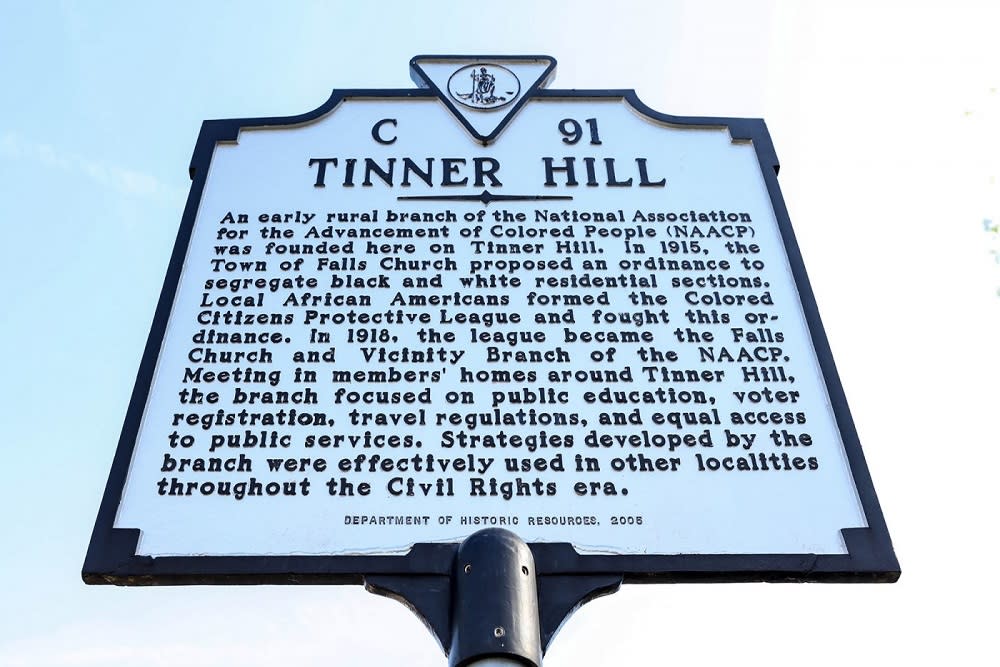
Image courtesy NOVA Parks
Tinner Hill is an important landmark as it is where the first rural branch of the National Association for the Advancement of Colored People (NAACP) was established in the United States. The site is commemorated with a 15-foot monument made of pink granite, honoring the individuals who spearheaded this milestone achievement. Visitors can also explore the nearby historic site and view the Zig Zag Monument, a sculpture that traces the original location of the segregation line.
Where: City of Falls Church, Virginia
Hot tip: Every June, the annual Tinner Hill Blues Festival descends on Falls Church – the only three-day music festival in Northern Virginia.
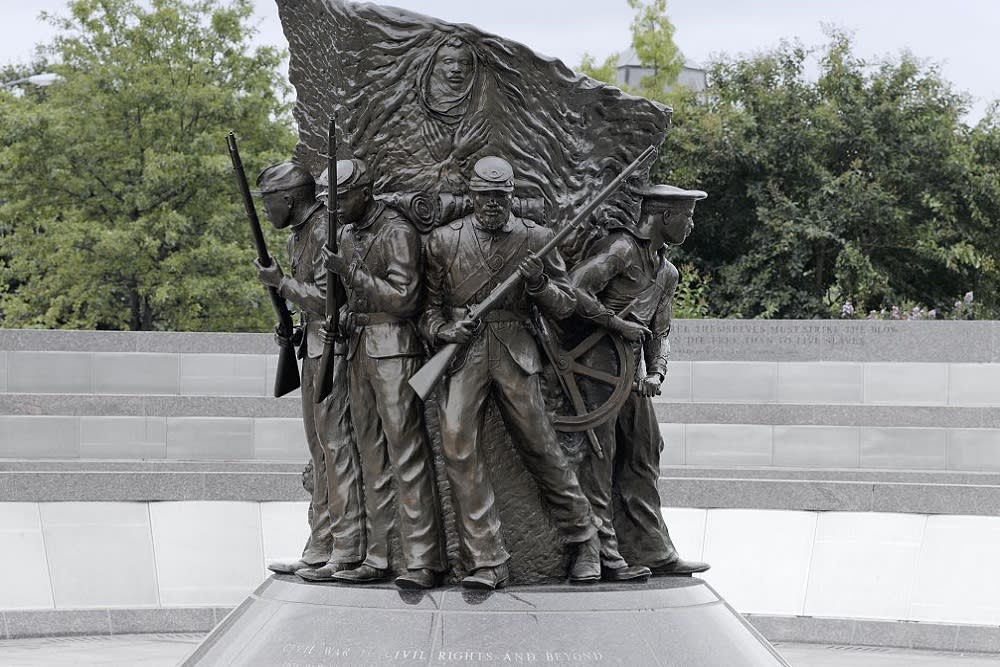
This site stands as the sole memorial in the country to commemorate African American Civil War soldiers, with the names of over 200,000 members of the United States Colored Troops inscribed on it who fought in the Union Army. Close by, the museum not only preserves the roles these soldiers played in putting an end to slavery but also recounts their stories of bravery in keeping America united under one flag.
Where: U Street Corridor, Washington, DC
Hot tip: The museum is located at 1925 Vermont Ave, NW Washington DC, directly across the street from the African American Civil War Memorial, located at 10th and U Streets, NW Washington DC. The use of public transportation, including taxis, is recommended.
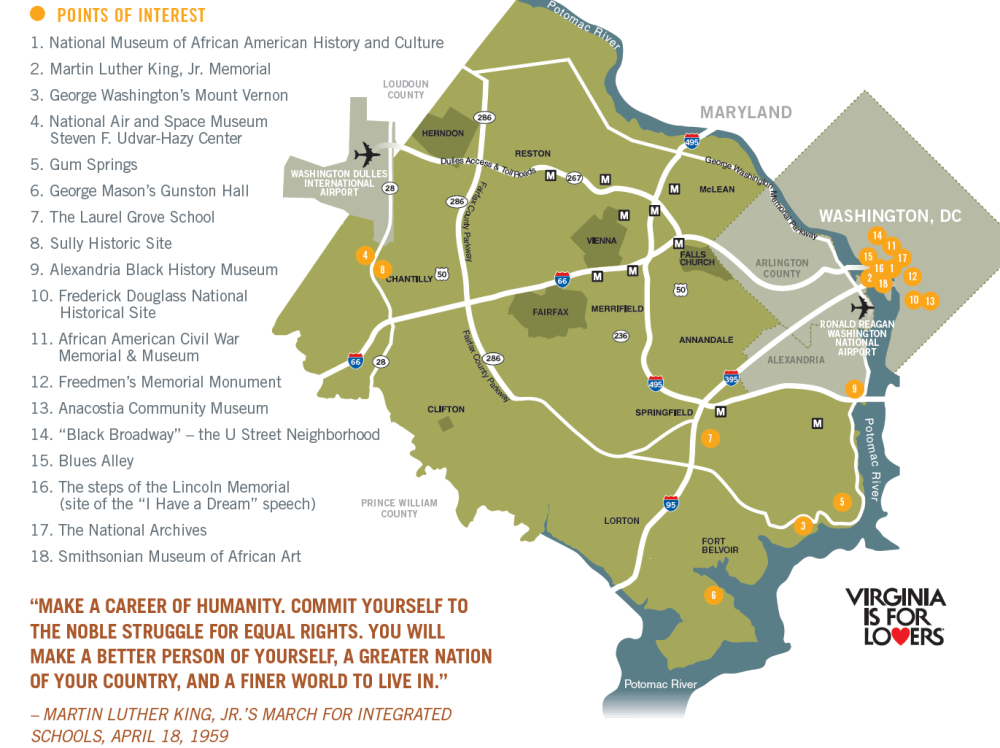
Black history goes deeper than just black history sites and African history museums. Support local and Black-Owned restaurants in Fairfax County while visiting these historic African American historical sites in Northern Virginia.
Learn about the Gum Springs area of Fairfax County from the Executive Director of the Gum Springs Historical Society and Museum - Ron Chase.
Learn the story behind the Laurel Grove School, one of the last remaining historically black one-room schoolhouses in Virginia.
Hear the story behind Luther Jackson High School - the first African American High School in Fairfax County.
The Fairfax County Park Authority is one of the most celebrated park systems in the nation. Their facilities, golf courses, trails, parks, and programs and activities offer visitors and residents alike wonderful opportunities to exercise…
There is a special place here in Northern Virginia that often flies under the radar. It's a community called Tinner Hill - a neighborhood that shares land in both Fairfax County and the now City of Falls Church. This close-knit…
Prior to the Civil War, many of Virginia's communities were a place where Black Americans sought only to survive. However, along the banks of the Potomac River lies a special community that wasn't just for "surviving…
Today, it is well known that Fairfax County public schools are regarded as some of the very best in the country, teaching hundreds of thousands of students from a variety of diverse cultures and backgrounds. However, there was a time in the…
One of the most remarkable sites in Fairfax County is Woodlawn. If you happen to stumble upon it, you might think it's just another old historic home here in Northern Virginia. And while that's understandable, you would be oh so…
When it comes to Civil War history, no other state even comes close to Virginia. Most of the war’s battles were fought here. The capital of the Confederacy was located here. And all around the Fairfax County line, parts of the state…
Immerse yourself in living history at the region's historic sites.
Learn about U.S. military history at these sites and museums.
Explore some of the world's best museums in the National Capital Region.
Visit iconic monuments and memorials found only in the DC area.
Updated 2024 It is known as “America's Second Independence Day.” Yet…
Even in our darkest times, love is all around us. Civil War-era Northern Virginia…
Washington DC is steeped in African American history, contributing significantly to the…
From the American Revolution and Civil War to remote parks where spies exchanged…